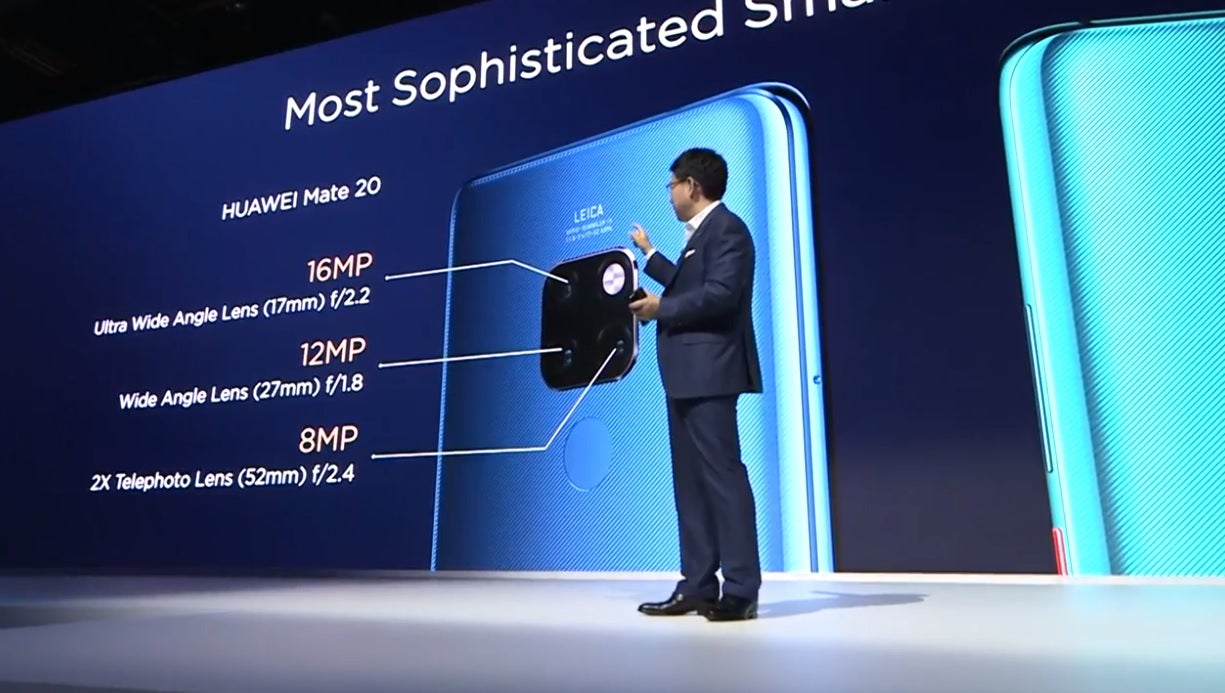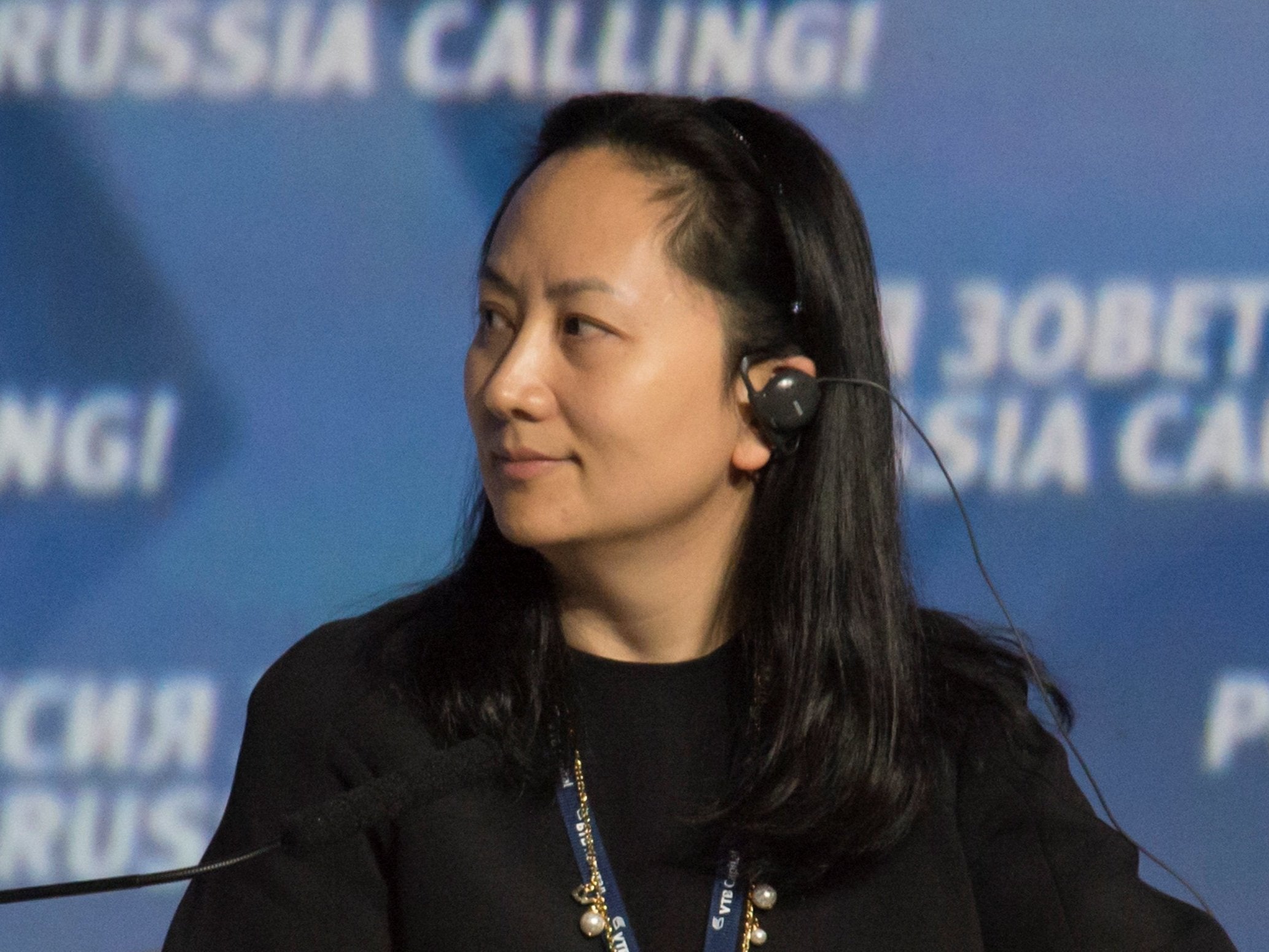What is Huawei? The controversial company helping to build the UK's 5G network
Smartphones like the Mate 20 Pro have helped Huawei compete with Apple and Samsung but the Chinese firm is beset by controversy
Your support helps us to tell the story
From reproductive rights to climate change to Big Tech, The Independent is on the ground when the story is developing. Whether it's investigating the financials of Elon Musk's pro-Trump PAC or producing our latest documentary, 'The A Word', which shines a light on the American women fighting for reproductive rights, we know how important it is to parse out the facts from the messaging.
At such a critical moment in US history, we need reporters on the ground. Your donation allows us to keep sending journalists to speak to both sides of the story.
The Independent is trusted by Americans across the entire political spectrum. And unlike many other quality news outlets, we choose not to lock Americans out of our reporting and analysis with paywalls. We believe quality journalism should be available to everyone, paid for by those who can afford it.
Your support makes all the difference.In July 2018, the battle between Apple and Samsung for the title of the world’s most popular smartphone maker was finally interrupted. After eight years, a Chinese upstart had entered the fray to challenge Samsung – but few people outside of Asia had ever heard of them.
Huawei had overtaken Apple by selling more than 54 million units in the space of three months, largely helped by the success of its hugely popular flagship phones that boasted some of the most impressive specs on the market.
Yet various political issues meant only a few thousand of those sales came from the highly lucrative US market.
Since then, several other western governments have raised concerns about Huawei in relation to the firm’s alleged ties with the Chinese government, with allegations that Huawei devices are being used as spy tools by Beijing.
The controversy surrounding Huawei has only continued to grow in 2019, fueled by strained relations between the China and the US. So where did this relatively unknown tech firm come from and how is it taking on the smartphone giants of Apple and Samsung?
What is Huawei and what do they make?
Huawei – pronounced ‘wah-way’, not ‘who are we’, as it has been jokingly referred to in the past – was founded in Shenzhen, China, in 1987 with a focus on manufacturing phone switches.
It has since grown into one of the largest technology firms in the world, with around 180,000 employees and operational in more than 170 countries around the world. It is now best known for its smartphones and tablets having turned its focus towards consumer electronics.
The firm’s flagship phone is the Mate 20 Pro, which is most notable for its outstanding camera. Huawei describes it as the “most sophisticated smartphone camera system,” made possible thanks to a partnership with German camera firm Leica.

By combining a 40MP sensor with artificial intelligence capabilities, Huawei has arguably managed to surpass Apple and Samsung when it comes to the smartphone camera.
Other stand-out features of the Mate 20 Pro include an in-screen fingerprint sensor, as well as reverse wireless charging that allows people to share their battery power with other smartphone users.
But it is not only smartphones that Huawei has been pioneering. The firm has also been developing the network infrastructure that these devices depend upon, with countries including the UK asking Huawei to build key parts of the country's next-generation network – albeit with certain restrictions.
Why are Huawei smartphones so popular?
It isn’t just Huawei’s high-end phones that have allowed the Chinese firm to overtake Apple in terms of global market share. A whole range of cheaper devices have helped boost the firm’s market position, such as the P20 Lite and the P Smart.
Heavy investment into research and development means the company once called an Apple copycat has now become a true competitor. Huawei’s R&D spending outstrips both Apple and Samsung and is currently only second to Amazon and Alphabet.

Several canny partnerships with non-tech firms have also allowed Huawei to broaden its appeal beyond those who care solely about the device’s impressive specs.
In 2017, for example, Huawei partnered with KFC in China to produce a limited edition smartphone that featured a Colonel Sanders logo and a KFC-branded music app that let owners create playlists for KFC restaurants.
Why is there so much controversy surrounding the company?
Despite Huawei’s global success, the one market Huawei is yet to crack is the US. Mobile phone carriers in the country have shunned Huawei due to various political pressures, which include national security concerns and Iranian sanctions.
A US House Intelligence Committee report from 2012 outlined its concerns about Huawei’s links to the Chinese state. Since then a number of other western governments have questioned Huawei’s ties, including Australia, Germany and the UK.
US government officials have been banned from using Huawei devices, with FBI Director Christopher Wray alleging the phones can be used to “maliciously modify or steal information,” though there has been no evidence of this.

Unrelated to the espionage allegations, Huawei has also been accused of evading US trade sanctions on Iran. In December, Huawei’s chief financial officer Meng Wanzhou was arrested in Canada at the request of the US after the firm allegedly evaded trade sanctions on Iran. Huawei has rejected the charges.
A spokesperson for Huawei stated: “The company denies that it or its subsidiary or affiliate have committed any of the asserted violations of US law set forth in each of the indictments, is not aware of any wrongdoing by Ms Meng, and believes the US courts will ultimately reach the same conclusion.”

Join our commenting forum
Join thought-provoking conversations, follow other Independent readers and see their replies
Comments